新卒2年目のエンジニアに聞く ビービットへ入社した3つの決め手、きつかった研修期間、顧客を支えるやりがい、今後の目標 / Interview with a new graduate engineer in his second year - The three deciding factors for joining beBit, tough training period, the fulfillment of supporting users, and his future goals.
*English follows Japanese
ビービットでは、様々な職種で多彩な背景を持った社員が活躍しています。
今回は、新卒で入社していきなりリモートワークの中、慣れない英語で新しい技術に挑戦し凄まじい成長を見せている、入社2年目のインフラエンジニア山崎さんを紹介します。
ビービットでのインターンや研修期間の様子など、学生の方にも参考になると思います。
ぜひご覧ください!

山崎 孔敬(やまざき よしたか) エンジニア
大学院で生命情報学を専攻し、研究でシミュレーションプログラムを作成した経験からエンジニアの道を志す。大学院修了後の2020年にビービット入社。現在はベトナム人エンジニアとチームを組み、インフラを中心に日々仕事での挑戦を続けている。
前に進もうとする強い思いに心が動いた
―ビービットに入社するきっかけを教えてください。
大学院で生命情報学を専攻していて、システム生物学が専門だったので生物の構造を解明するためのシミュレーションプログラムを作成していました。その経験からプログラミングの面白さを知り、また自分の強みにもなるのではないかと考え、IT系の仕事をしたいと考えるようになりました。
ビービットとの出会いは、ある理系特化型スカウトサービスにて声をかけていただいたのがきっかけです。その時は面白そうな会社だなと思って軽い気持ちで申し込んだのですが、1か月のインターンを経験してビービットで働きたいと思い入社しました。
―他にも候補の企業はあったと思うのですが、ビービットに入社する決め手はどんなことだったのでしょう?
3つあって、ひとつは大企業で働きたくないという思いがありました。大きな組織だと仕事が細分化されて、ビジネスの全体の流れを俯瞰して見ることができないと考えていましたし、どこに配属されるかわからないので、自分が働くイメージを持てなかったからです。面接の時にもそのことを話したら面接官の方からも共感してもらえて、同じ思いだとわかり嬉しかったです。
―2つ目はどんなことですか。
ビービットの人たちと一緒に働きたいと思えたことです。インターンをやっていた時に、西岡CTOや那珂(将人)さんとお会いする機会がありましたが、お二人の話す内容がとてもわかりやすかったんですね。私は「どんないい仕事をしていても、そのことを人に伝えられなければ意味がない」と考えているので、伝え方が上手な方はすごく尊敬しています。
―伝え方が大事だというお話はとても印象的です。どういう経験からそう思われたのですか。
大学院の研究室で伝え方については相当鍛えられました。教授の方針で、研究発表会でも他の研究室の倍くらいの時間をかけて準備していました。なぜかというと、発表の内容には序論・本論・結論で構成されていますが、まずは序論がきちんと伝わらないと、その後の議論が序論のレベルで終わってしまうからです。実のある議論にするためには、相手に深く理解してもらわなければいけません。私はまだ社会人として経験が少ないのですが、伝える力は私の財産になっています。
―3つ目の決め手はどんなことでしょうか。
手取り足取り教えてもらうものではなく、自ら学んでいく環境が自分に合っていると思いました。ビービットには前に進もうという強い意志を持っている人が多いので私もそうありたいと思っています。
仕事の幅を広げていく楽しさ、顧客を支えるやりがい
―入社する前のインターンではどんなことをしましたか。
CSVデータをアップロードするとグラフが表示されるというプログラミングを担当し、成果を発表して正式な内定をいただきました。インターンをしていた1か月間は、研究室での研究を続けながら週に数時間オンラインで仕事をして、週に1回はビービットに出社するようにしていました。
―そしてご縁あって入社ということになりましたが、すぐに仕事をアサインされたのでしょうか。
いえ、最初の3か月は研修期間ということで、メンターがカリキュラムを組んでくれました。自社のプロダクトである「USERGRAM (ユーザグラム) 」の仕組みとインフラの技術要素の部分を1週間単位で交互に学習していきました。主にAWSのリソース定義に用いているTerraformやKubernetesといったインフラのためのプラットフォームやミドルウェア等の技術要素について学ぶ機会がありました。研修が終了した後はメンバーがやっているサブタスクを経験しながら徐々に自分のできる範囲を広げています。
―今の職種はインフラエンジニアですが、山崎さんが希望したんですか?
はい、希望を聞いてもらえてインフラエンジニアになることができました。インフラはシステム全体を支えるものなので、ビジネスを俯瞰して見ることができるし、裏方の役割も性に合っていると思っていました。研修期間が終わってからは、開発環境の改善に取り組んでおり、データの整備や、より安定した環境の構築等の仕事をしています。それに加えて、2020年末から「役割で仕事をするのではなく、お客様に価値があることを仕事にしよう」という方針の転換があり、インフラエンジニア以外の仕事もやっています。
―インフラ以外の仕事をやってみてどうですか。
インフラの仕事は大好きですが、仕事の幅が広がるのもとても楽しく、やりがいがあります。インフラは改善してもお客様の目に見えるメリットにはなりにくいのですが、機能に関わるところは改善するとお客様の利用状況が大きく変わるのがわかります。よりお客様の顔が見えて、お客様に届くものを直に提供できると思うと、とても楽しいです。
―今までの仕事の中で苦労したことはありますか?
今思うと、研修期間が一番大変だったと思います。右も左もわからない状態で学び始めたので、習得するのに時間がかかりました。その成果を毎週英語でプレゼンテーションするのもきつかったですね。それに加えて、入社した時にはすでにコロナ禍の影響で完全リモートワークになったので、コミュニケーションの取り方にも戸惑いがありました。ただメンターがきめ細かく見てくれて、負荷を見ながらカリキュラムを組み直してくれるといったサポートもあって乗り切ることができました。
―特に英語は大変そうですね。
日本人で1対1のコミュニケーションをするときは日本語のこともありますが、基本的なエンジニア間のコミュニケーションは全て英語ですからね。でも今のチームはベトナム人3人と私だけで、私以外に日本人が一人もいないせいか、英語でのコミュニケーションがかなり上達しました。やはり言語は日常で使うことが上達の近道だと実感しています。
―普段はどのような一日を過ごしていますか。
私は9時から10時の間に仕事を始めて、11時から定例のミーティングに向けて自分の状況を整理します。ミーティングでは、メンバーがそれぞれ状況報告をするほか、課題についてディスカッションすることもあります。その後は自分のタスクをこなし、18時に終わるときもあれば、20時ぐらいまで仕事をするときもあります。私以外のチームメンバーはベトナムで仕事をしていて日本と2時間の時差があるので、なるべく彼らの働いている時間帯に合わせて仕事をするようにしています。
―仕事で気を付けていることはありますか。
仕事をする上で、よくわからないまま他の人が書いたプログラムと同じようにコーディングするのは良くないと考えるようになりました。先人の書いたプログラムが完璧である保証も、今の環境に合っている保証もないからです。時間の制約はありますが、現状の構造を理解して改善につなげていくことを心がけています。

困難な状況でも常に笑顔でポジティブ、チャレンジ精神旺盛な山崎さん。趣味はお酒を飲むことと、最近友人に誘われて始めたゴルフ。
あくなき向上心に刺激を受ける
―ビービットの良さはどんなところにあるんでしょうか。
オープンなところです。ビービットでは全体で今どんなことが起きているかということがよくわかりますし、社内の情報もかなりオープンに共有されています。社内のイベントでいろいろな人と話す機会では、仕事の話だけではなく、プライベートなことについても話が弾んで、名残惜しいな、もっと話したいなと思うことが多いです。
―ビービットはどんな人が向いていると思いますか。
常に自分自身をアップデートしようとする人が向いていると思います。私自身、停滞していると取り残されてしまうという感覚があり、刺激を受けています。周りの人が自分自身のためだけではなくて、習得したものを常に周りに共有する姿勢を尊敬しますし、私もそうなりたいと思います。
―今後どのようなことをやっていきたいですか。
インフラエンジニアとしては、障害が発生した時に次に取るべき行動がすぐに思い浮かぶレベルになりたいです。インフラエンジニアとして技術力を磨きつつ、バックエンドやマシンラーニングのようなデータサイエンスにも挑戦していきたいです。
―最後にビービットに入社を考えている人にメッセージをお願いします。
私もそうですが会社のビジョンや方向性に共感できると、高いモチベーションで働けると思います。共感できる会社に入社して、どんどん活躍してほしいです。
山崎さんは、周囲の誰もが認める好青年。簡潔で説得力のある話し方からぶれることのない思いが伝わってきて、とても印象的でした。これからも活躍を期待しています!
ビービットの開発部門では、山崎さんと一緒にチームを作ってくれる仲間を募集しています!
(取材・執筆協力:山際貴子)
【インタビュー 一覧】
“ユーザー中心”のサービスを育てるスピリットが、ここにはあった。インタビュー #1 エンジニア上杉さん
ビービットとの出会いは、仲間と一緒にサービスを作る楽しさを教えてくれた/インタビュー #2 エンジニア 安保さん
ソフトウェアエンジニアリングは日々進化している。常に新しいドアを開け、熱意を持って挑戦し続けたい/インタビュー#3 エンジニア ニラヴさん
ビービット プロダクト開発チーム 副責任者が語る 変化を恐れない会社が唯一変えない「理念」/ インタビュー#5 開発副責任者 岡さん
重工メーカーの研究職から開発エンジニアへ。メンバーの成長を支え、目指すは「最高のユーザー体験の提供」/ インタビュー#6 エンジニア 池田さん
多くのネパール人エンジニアを育て上げた大学講師から開発エンジニアへ。日本に来た理由 、USERGRAMの魅力、ビービットで働く意味。/ インタビュー# 7 エンジニア ビノドさん
「凡庸な毎日を変えたかった」ネパール出身のエンジニアに聞く、リスクを冒す理由、モチベーションの源泉、挑戦してみたいこと。/ インタビュー #8 エンジニア サガールさん
Inspired by the people around me, I'm trying to update myself day-to-day.
Interview with engineer Yoshitaka Yamazaki
At beBit, we have employees with diverse backgrounds working in various positions. This time, we would like to introduce Mr. Yoshitaka Yamazaki, an infrastructure engineer who has been with beBit for two years since he graduated. His story about his internship and training period at the company will be helpful to students.
Yoshitaka Yamazaki Software Engineer
Majored in bioinformatics in graduate school and aspired to become an engineer through the experience of creating simulation programs for research. After completing graduate school, he joined beBit in 2020. He's currently working with a team of Vietnamese engineers and continues to challenge himself at work, focusing on infrastructure. His hobbies include drinking and golf, which he was recently introduced to by his friend.
I was moved by their strong desire to move forward.
What made you join beBit?
I majored in bioinformatics in graduate school. Since my specialty was systems biology, I created simulation programs to elucidate the structure of living organisms. Through this experience, I found programming very interesting and thought it could be my strength, which led me to think I want to work in the IT field.
My first encounter with beBit was when I was approached by a scouting service specializing in science. I thought it sounded like an interesting company, so I applied casually, but after one month of internship, I decided to work at beBit.
What made you choose beBit? I'm pretty sure there were many candidates.
There were three things. One thing was that I did not want to work for a large company as I thought that in a large organization, work would be subdivided. I would not be able to have a bird's-eye view of the entire flow of business, and I would not be able to have an image of where I would be working because I would not know where I would be assigned. When I mentioned this at the interview, the interviewer sympathized with me, and I was glad to see that he felt the same way.
What's the second thing?
The second thing was that I wanted to work with the people at beBit. When working as an intern, I had a chance to meet CTO Nishioka and Mr. Naka (Masato), and I found what they said to be very easy to understand. I believe that no matter how good your work is, it's meaningless if you can't convey it to people. I really respect people who are good at delivering their ideas.
What you said about the importance of how to communicate is very impressive. What kind of experience made you believe so?
I learned a lot about how to communicate in my graduate school laboratory. My professor's policy was that we had to spend twice as much time preparing for the research presentation as other laboratories. The reason is that the content of a presentation consists of an introduction, main argument, and conclusion. If the introduction is not conveyed correctly first, the discussion that follows will end at the introduction level. To have a fruitful discussion, you have to make sure that the other person understands you deeply. I have not had much experience as a working member of society yet. Still, my ability to communicate has become an asset to me.
What's the third thing?
The third thing is that I thought the environment where I can learn by myself rather than being taught by hand would suit me. Many people at beBit have a strong will to move forward, making me want to be like them.
The joy of expanding the range of work. The rewarding experience of supporting users.
What did you do during your internship before joining the company?
I was in charge of programming displays graphs when CSV data was uploaded. I presented my results and received an official job offer. During the month I was an intern, I worked online a few hours a week while continuing my research in the lab, and I tried to come to work at beBit once a week.
Then, you were fortunate enough to join the company. Were you assigned to a task right away?
No, the first three months were a training period, so my mentor set up a curriculum for me. I learned the mechanism of "USERGRAM", one of our company's products, and the technical elements of the infrastructure in alternating on a weekly basis. I had the opportunity to learn about technical elements such as platforms and middleware for infrastructure, including Terraform and Kubernetes, which are mainly used for defining AWS resources. After completing the training, I am gradually expanding the scope of what I can do while learning and experiencing the subtasks that team members are doing.
Your current profession is infrastructure engineer, but did you request it?
Yes, they accepted my request, and I was able to become an infrastructure engineer. Since infrastructure supports the entire system, I could see the business from a bird's-eye view, and I thought that a behind-the-scenes role would suit who I am. Since the end of my training period, I have been working on improving the development environment, maintaining data, and building a more stable environment.
Plus, starting at the end of 2020, there has been a shift in our direction. "Work on what is valuable to the users, rather than working within the scope of individual roles." So I have been doing work other than infrastructure engineering lately.
How do you like working on something other than infrastructure?
I love working with infrastructure, but I really enjoy and find it challenging to expand the scope of my work. Even if we improve the infrastructure, it's hard to see the visible effects on the users. Still, if we improve the parts related to the functions, we can see a significant change in customers' usage. It is delightful to think that we can see the faces of our users more and provide something that reaches them directly.
What are some challenges you have faced in your work?
Looking back now, I would say that the training period was the most challenging. It took me a long time to master the skills because I started learning when I had no idea what I was doing. It was also very challenging to give weekly presentations in English on the achievements. On top of that, I joined the company when we were already fully remote due to the COVID-19 calamity, so I found it difficult to communicate with others. However, I was able to get through it thanks to the support of my mentor, who closely monitored my progress and rearranged the curriculum.
Sounds like English is challenging, especially.
When I communicate one-on-one with Japanese engineers, we speak in Japanese. Still, basically, all communication between engineers is in English. However, in my current team, there are only three Vietnamese and me. Because there's no Japanese other than me, I think my communication in English has improved a lot. I really feel that using the language daily is a shortcut to improvement.
What is your typical day like?
I usually start work between 9:00 and 10:00 and organize my work situation for our daily meeting at 11:00. At the meeting, each member gives a status report, and sometimes we discuss issues. After that, I do my own tasks, sometimes finishing at 6:00 p.m. and sometimes working until around 8:00 p.m. My team members work in Vietnam, and there is a two-hour time difference, so I try to work around their working hours as much as possible.
Is there anything that you pay attention to when you work?
I think it's not a good idea to code the same program as someone else has written without understanding it well. This is because there is no guarantee that the previously written program is perfect or suitable for the current circumstance. Although there is a time limit, I try to understand the existing structure and improve it.
Driven by endless ambition
What do you think are the advantages of beBit?
It is beBit's openness. You can clearly see what is happening in the company as a whole, and information within the company is shared very openly. When I have a chance to talk with various people at company events, I often want to talk more about my personal life and work.
What type of person do you think is best suited for beBit?
I think that people who are always trying to update themselves are suited for our company. If I remain stuck, I will be left behind, so I am inspired by the people around me. I admire the attitude of always sharing what you have learned with others, not just for yourself, making me want to be like them.
What would you like to work on in the near future?
As an infrastructure engineer, I want to be at a level where I can immediately come up with the necessary action you should take next when any incident occurs. While improving my technical skills as an infrastructure engineer, I would like to challenge myself in data science, such as back-end and machine learning.
Lastly, any message for the engineers who are about to join beBit?
If you can resonate with the vision and direction of the company, as I do, I think you will be able to work with high motivation. I hope you will join a company that you can relate to and play an active role in the company.
Mr. Yamazaki is a nice young man who is down-to-earth and enthusiastic about learning new things. His speech was impressive, being concise, and persuasive, which conveyed his unwavering thoughts. I look forward to his continued success!
beBit's development team is looking for people to join Mr.Yamazaki and his team!
【Other Interviews】
"There is a spirit of developing user-centered services here" Interview with engineer Osuke Uesugi.
From a researcher at a heavy industry manufacturer to a software development engineer, he supports team members' growth, aiming to "provide the best user experience." / Interview with engineer Kazuki Ikeda
"I wanted to change my mundane routine life." An interview with an engineer from Nepal on why he takes risks, what motivates him, and what he wants to challenge. / Interview with engineer Sagar Giri
/assets/images/2809871/original/d94cff11-482c-401f-968c-7d38d7f1d867?1571658343)
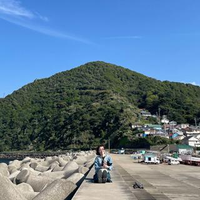
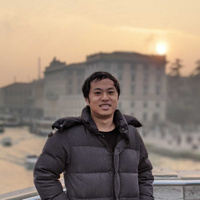
/assets/images/2809871/original/d94cff11-482c-401f-968c-7d38d7f1d867?1571658343)


/assets/images/2809871/original/d94cff11-482c-401f-968c-7d38d7f1d867?1571658343)
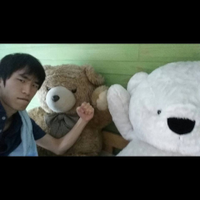
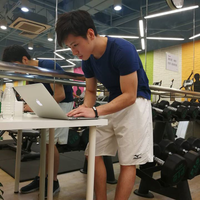

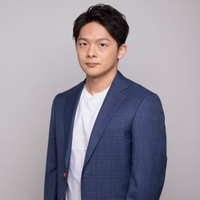
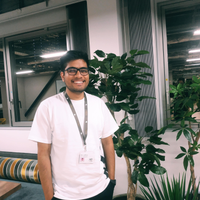
/assets/images/6144578/original/d94cff11-482c-401f-968c-7d38d7f1d867?1611534232)
